| . 2022-3 welcomes you to 15th annual players cards of world record jobs - how to play games version of WRJ
Health we continue to value alumni of Brilliant, Nightingale (doubly so given Ukraine situation) , the women who built a nation round last mile health care with Fazle Abed.,Abed's 21st C comrade spirit Jim Kim without whom the signature transformation of UN leader Guterres : UN2 that proacts engineering/entrepreneur/education/Servant leader smarts into any silo of old gov probably would not be with us WorldClassDaos recommends we leap into better 2020s best place to start: HONG KONG as WorldClassEngineer laureate of 2022. While dad, norman macrae, coined term Entrepreneurial Revolution in The Economist 1969. Friends think there would be few problems in the world if every 1/1000 of humans were as energetic multi-win traders as Hong Kong, Hong Kong is leading 21st coming of age with unprecedented co-creativity geared to making sure web3 serves communities in ways no previous web 2, 1 or tele media (arguably only attenborough beat off vested interests to sustain 50 years of consistent tv storytelling access -moreover web3 has emerged out of a radical fintech foundation with concept of Satoshi 2008 intended to be a decentralised solution to serial abuse of communities by subprime banking JOTTINGS: Nightingales deliver motion for UNGA77 .why love Stanford. (rules options) :: top 2 alumni networks to cooperate with remain Fazle Abed & Von Neumann-; with urgent appearance of web3 as make or break sustainability generation we've spent time zooming up bop-eg Singapore Players, ..... more WRJ | Upd Fall 2023 - Worlds AI see change everyone's futures; Musk headline on need for 3rd party referee is transnational ai summit's deepest intelligent momentupd valentines 2023 ...Join us at twitterversal.com and TAO: Twitter Autonomy Opsworldclassdaosgreenbigbang invites you to have a sneak at our new picks for 2023 if you are comfy with messy searchesSDGs rising by valuing women's productivity emulating mens Coming soon Tao.dance- dance then wherever you may be for I am the oak tree of nature's dance said (s)he | If you are going to help save 2020s world from extinction (let alone putin!) the top 50 people you'll need to learn and action with will be a deeply personal combo- GAMES OF WRJ #1 edit 50 playing cards from WRJ -ask a friend to do likewise- see how many common choices you made -then choose one to keep your friend had not chosen and voce versa - by all means add in your own selections- keep updating your 50 cards aide memoire.. bon courage - who need to be at WRJ? rsvp chris.macrae@yahoo.co.uk. | * 9/8/18 paul oyer: fei-fei li : lei zhang - WE WELCOME q&a THE MORE MATHEMATUCAL OR HUMAN THE BETTER chris.macrae@yahoo.co.uk MA stats cambridge 1973 2016 bangladesh schools go edigital nationwide :: brookings video :: Bangla video :: brac how's that | 1/1/21 we have entered the most exciting decade to be alive- by 2030 we will likely know whether humans & tech wizards can save futureoflife- tech surveys indicate odds of accomplishing this greatest human mission would be lot less without spirit of a chinese american lady at stanford-... bonus challenge for those on road to glasgow cop2 nov2021: future 8 billion peoples want to value from 2021 rsvp chris.macrae@yahoo.co.uk GAMES of world record jobs involve *pack of cards: world record jobs creators eg fei-fe li ; fazle abed ... *six future histories before 2021 starts the decade of empowering youth to be the first sustainable generation. problem 99% of what people value connecting or doing to each other has changed (and accelerated in last three quarters of a century- while laws, culture and nature's diversity and health are rooted in real-world foundations that took mother earth 1945 years to build with -and that's only using the christian calendar | 1995 started our most recent quater of a century with 2 people in Seattle determined to change distribution of consumers' markets - the ideas of how of bezos and jack ma on what this would involve were completely different except that they changed the purpose of being online from education knowledge to buying & selling things - nb consuming up things is typically a zero-sum game or less if done unsustainable- whereas life-shaping knowhow multiplies value in use | from 1970 to 1995 knowhow needed to end subsistence poverty of over a billion asian villagers was networked person to person by women with no access to electricity grids- their number 1 wrjc involved partnerships linked by fazle abed - borlaug's crop science was one of the big 5 action learnings -its person to person application saved a billion people from starvation; the first 185 years of the machie age started up bl glasgow university's smith an watt in 1760 had brought humans to the 2 world wars; when people from nearly 200 nations founded the united nations at san francisco opera house 1945 chances of species survival looked poor- miraculous;y one mathematician changed that before he died 12 years later- john von neumann's legacy was both the moon race and twin artificial intel labs - one facing pacific ocean out of stanford; the other facing the atlantic out of mit boston .. | who are top job creating economists by practice - health -refugee sports green hong kong | ..where are top tour guides around billionaire 1 2 around poverty,,, we the peoples ... |
Friday, December 25, 2020
ackoff system
after 9/11 i spent a lot of time listening to people who try to see the world in system terms not just numerical extraction-one of the great missing pieces for my mind at that time was this paper of ackoff reproduced below
of course, your aha : why didn't anyone tell me that before, may be different from mine:
ackoff's paper was also a timely reminder to me of einstein bon mots- whenever mans science says there is no more space to innovate men mean they cannot understand more until they go to a more micro level of mapping dynamic interactions- macroeconomists and their associated ruling professions hate eistein when you explain how little they understand about exponential risks
a related idea is chaos theory- i have never found the metaphor that a butterfly flapping its wings in the amazon can impact the world's supreme leader- i suggest a more direct exemplar is one mans sneeze somewhere towards the end of 2019 that has become one of nature's final examination questions of every civilisation around the world of the 2020s
=====================================
May 26, 2004 1
TRANSFORMING THE SYSTEMS MOVEMENT
Russell L. Ackoff
The situation the world is in is a mess. This hardly requires documentation; it's
obvious. Furthermore, as Leslie Gelb observed (1991), the prospects for
improvement are not promising:
...the emerging world requires a new foreign policy agenda, and fresh
faces to execute that agenda. The trouble is, the same old "experts" are
still running foreign policy and most of them only dimly understand the
world they preside over. Indeed, few people today, in or out of
Government, have the background and skills to grasp, let alone direct, the
new agenda. ( p. 50)
Reform will not do it; transformations are required, two kinds. First a
transformation of the way nations and international institutions handle global
affairs and second, a transformation in the way systems thinkers collectively
conduct the systems movement. The second must come first if we hope to have
any effect on the global mess.
Reformations and transformations are not the same thing. Reformations are
concerned with changing the means systems employ to pursue their objectives.
Transformations involve changes in the objectives they pursue. Peter Drucker put
this distinction dramatically when he said there is a difference between doing
things right (the intent of reformations) and doing the right thing (the intent of
transformations).
The righter we do the wrong thing, the wronger we become. When we make a
mistake doing the wrong thing and correct it, we become wronger. When we
make a mistake doing the right thing and correct it, we become righter.
Therefore, it is better to do the right thing wrong than the wrong thing right. This
is very significant because almost every problem confronting our society is a
result of the fact that our public policy makers are doing the wrong things and are
trying to do them righter. Consider a few examples.
The United States has a higher percentage of its population in prison than any
other country, and simultaneously has the highest crime rate. We have more
people in prison than are attending college and universities, and it cost more per
year to incarcerate them than to educate them. Something is fundamentally
wrong.
Most who are imprisoned are subsequently released. As criminologists have
shown those released have a higher probability of committing a crime when they
come out than when they went in, and it is likely to be a more serious crime.
Prison is a school for learning criminality, not a correctional institution.
In quality the health care system of the United States is ranked 37th by the World
Health Organization. We are the only developed country without universal
coverage; about 42 million people in our country have no health care assured.
Moreover, study after study has shown that much of the need for the care that is
provided is created by the care that is given; excess surgery, incorrect diagnoses,
wrong drugs prescribed or administered, unnecessary tests. The fact is that the
so-called health care system can survive only as long as there are people who
are sick or disabled. Therefore, whatever the intent of its servers, the system can
only assure its survival by creating and preserving illness and disability. We have
a self-maintaining sickness- and disability-care system, not a health care system.
The objectives that must be changed in transformations are not usually those that
are proclaimed; rather they are the one actually pursued. For example, most
corporation proclaim maximization of shareholder value as their primary objective.
Any objective observer of corporate behavior knows that this is an illusion. As a
study conducted a while back at GE showed, the principal objective of
corporations is to maximize the security, standard of living, and quality of life of
those making the decisions. Recent disclosures at Enron and WorldCom, among
others, made this abundantly clear.
A similar discrepancy between objective proclaimed and objective practiced can
be observed in most organizations. For example, one could mistakenly believe
that the principal objective of universities is to educate students. What a myth!
The principal objective of a university is to provide job security and increase the
standard of living and quality of life of those members of the faculty and
administration who make the critical decisions. Teaching is a price faculty
members must pay to share in the benefits provided. Like any price, they try to
minimize it. Note that the more senior and politically powerful teaching members
of the faculty are, the less teaching they do.
Transformations not only require recognition of the difference between what is
practiced and what is preached — a transformation called for years ago by
Donald Schon (1971) — it also requires a transformation in the way we think.
Einstein put it powerfully and succinctly:
Without changing our patterns of thought we will not be able to solve the
problems we created with our current patterns of thought.
I believe the pattern of thought that is required is systemic. It is difficult if at all
possible to reduce the meaning of "systemic thinking" to a brief definition.
Nevertheless, I try.
Systemic thinking is holistic versus reductionistic thinking, synthetic versus
analytic. Reductionistic and analytic thinking derives properties of wholes from
the properties of their parts. Holistic and synthetic thinking derive properties of
parts from properties of the whole that contains them. The creation of the
department of Homeland Security is a prime example of reductionistic and
analytical thinking; the whole formed by the aggregation of existing parts. In
contrast, when an architect designs a house he first sketches the house as a
whole and then puts rooms into it. The principal criterion he employs in
evaluating a room is what effect it has on the whole. He is even willing to make a
room worse if doing so will make the house better.
In general, those who make public policy and engage in public decision making do
not understand that improvement in the performance of parts of a system taken
separately may not, and usually does not, improve performance of the system as
a whole. In fact, it may make system performance worse or even destroy it.
We have not effectively communicated such thoughts to public policy and
decision makers. What should we be communicating to them that would, if
heeded, transform our global society into one that is just and equitable, one that
would reduce if not eliminate the maldistribution of wealth, quality of life, and
opportunity? In other words: what should we communicate and be doing that
could promote development of the world and its parts by changing the way public
policies and decisions are made?
Up to now, those of us in systems have had little or no effect on the global mess.
Nevertheless, I believe there is a role that we could play in the dissolution of this
mess. What and how might we contribute to its dissolution?
I think we can contribute by making public policy and decision makers aware of
ideas and concepts that would enable them to think more creatively and
effectively about the mess the world is in. Here I discuss only a few systemic
ideas and processes that I wish they understood. There are many others but I
would settle for their grasping this much.
The ideas and concepts I identify here are familiar to most systems thinkers even
if they would express hem differently. I include them here not to inform them but
to call their attention to aspects of systems thinking that I believe they should
communicate to public policy and decision makers.
DEVELOPMENT VERSUS GROWTH
I hope we can help public policy and decision makers realize that development
and growth are not the same thing. Neither presupposes the other. Rubbish
heaps grow but do not develop. Einstein continued to develop long after he
stopped growing. Some nations grow larger without developing. and others
develop without growing.
Growth is an increase in size or number. Development is an increase in
competence, the ability to satisfy ones needs and desires and those of others.
Growth is a matter of earning; development is a matter of learning. Standard of
living is an index of national growth; quality of life is an index of its development.
Development is not a matter of how much one has but how much one can do with
whatever one has. This is why Robinson Crusoe is a better model of
development than J. Pierpont Morgan.
The quality of life that an individual or group can achieve obviously depends on
both their competence and their wealth. Of two societies with the same level of
competence the one with the most wealth can achieve the higher quality of life.
But of two societies with the same resources, the one with the greater
competence can achieve a higher quality of life.
Because development is a matter of learning, one cannot do it for another. The
only kind of development possible is self-development. However, one can
facilitate the development of another by encouraging and supporting their
learning. Nations must stop acting as though they can solve other nations'
problems. Nations, like individuals, learn less from the successes of others than
from their own mistakes.
One never learns from doing things right because, obviously, one already knows
how to do it. What one derives from doing something right is confirmation of what
one already knows. This has value, but it is not learning. One can only learn
from mistakes, by identifying and correcting them. But all through school and in
most places of employment we are taught that making mistakes is a bad thing.
Therefore, we try to hide or deny those we make. To the extent we succeed, we
preclude learning
Furthermore, there are two types of mistakes: errors of commission, doing
something we should not have done; and errors of omission, not doing something
we should have done. Examination of the failures or crises that organizations and
institutions have experienced reveals that errors of omission are the more serious.
For example, In the latter part of the last century IBM got into serious trouble
because it failed to pay attention to the development of small computers, and
Kodak got into its current trouble for failing to focus on the development of digital
photography until others had successfully staked a claim to it.
Our public and private accounting systems record only the less important type of
mistake, errors of commission. Therefore, for executives who want to maximize
their job security in a public or private organization that deprecates mistakes and
ignores errors of omission, the best strategy is to do nothing or as little as
possible. This is the root of the conservatism that permeates the world today.
This nation, I believe, has never had an administration as reluctant to
acknowledge its errors as the one currently in office. Because of this it has
precluded the possibility of its learning.
We need to learn a great deal more about learning. Our schools at all levels are
devoted more to teaching than to learning. For example, it is apparent to anyone
who has taught others that the teacher learns more than the students do.
Teaching is a much better way to learn than being taught. Schools are upside
down. Students ought to be teaching and faculty members should be learning
how to help others learn and how to motivate them to do so.
A student once stopped me in the hall and asked, "Professor, when did you teach
your first class?" That was easy: I answered, "September of 1941." "Wow!" he
said, "You have been teaching for a very long time." I agreed. Then he asked,
"When was the last time you taught a course in a subject that existed when you
were a student?" This question required some thought but finally I got it. and
answered, "September of 1951." He said, "Do mean to say that everything you
have taught for about fifty years you had to learn without having it taught to you?"
I said, "Yes." "Wow,” he said again. "Your must be a pretty good learner." I
modestly agreed. He continued, "What a pity you are not that good a teacher."
He had it right: faculty members know how to learn better than they know how to
teach. Therefore, they should be acting as resources to students who are either
engaged in teaching others, or learning on their own or with others cooperatively.
One of the great gifts I received from West Churchman, whose life we will
remember and celebrate tonight, is that he let me go through graduate school
teaching most of the courses I needed to take for graduation.
Democracy has to be learned. It cannot be imposed on others. It must be
learned by experiencing it. It does not come to us naturally. All of us are brought
up by adults who, even in permissive families, are authorities who control us or
set limits within which we have freedom. In effect, we are raised in autocratic
structures however benevolent they may be. Therefore, in a sense autocracy is
more natural than democracy.
I was once involved in a project in Mexico which taught me how democracy could
be learned. A group of us from several Mexican universities and a government
agency were able to make available to a very remote Indian village in the Sierra
Madras Mountains a substantial sum of money the village could use for its
development. It alone had to make the decisions as to how to use the money but
it had to make these decisions democratically. The only power the team of which
I was a part had was to veto any decisions not made democratically and which did
not involve development. Town meetings were initiated fin the square in the
center of the village, and after a series of tries the village members learned how to
make decisions democratically. They also learned and difference between
development and welfare.
HOW DO WE HAVE TO CHANGE OURSELVES?
... man has been able to grow enthusiastic over his vision of ...
unconvincing enterprises. He has pit himself to work for the sake of an
idea, seeking by magnificent exertions to arrive at the incredible. And in
the end, he has arrived there. Beyond all doubt it is one of the vital
sources of man's power, to be thus able to kindle enthusiasm from the
mere glimmer of something improbable, difficult, remote. (1966,p.1)
Now, what might the systems community do about the deficiencies I have
discussed? Clearly we must learn how through communication to make public
policy and decision makers aware of these deficiencies and what to do about
them. We are not doing so now. Most of our communication is addressed to
each other, not to public policy and decision makers. Our communication is
based on our needs not those of others. With the intent of changing this I have
several proposals.
First, our principal professional organization, the International Federation for
Systems Research, should publish a journal addressed to public policy and
decision makers who can affect the global mess. Through expository articles and
case studies the journal should help them come to understand systems thinking
and its use in their work. It should be distributed to them at no cost. The
Federation should cover the cost, if necessary by voluntary contributions of its
members.
The Journal, possibly called Systems Thinking in Public Affairs, should be
supplemented by at least one conference per year held at a site at which a major
multigovernmental institution is located. Public policy and decision makers should
be invited mostly to discuss their problems and listen to unconventional systemic
approaches to them.
In addition, those of us who think of ourselves as system thinkers should
contribute to those publications that are read by those in public life whom we want
to affect. We should also try to make presentations at conferences they attend.
Our professional societies should make it their responsibility to facilitate such
participation by informing us of relevant opportunities and, where possible, by
arranging jointly sponsored meetings.
Finally, we should engage in assisting development efforts of less developed
countries, regions, communities, and neighborhoods. This does not mean
imposing our solutions on them but assisting them in implementing their proposed
solutions to their problems, even if they are wrong. They can develop more by
making their own mistakes than by imitating our successes.
Systems thinking produces radical and potentially revolutionary visions of public
institutions. Nothing short of such visions can transform the state of world affairs.
I believe we have an obligation to the global society of which we are a part to
make every possible effort to bring about a radical transformation of that society
into one in which our children do not have to contend with the mess we have
created and are exacerbating.
May 26, 2004 11
_____________________________________________________________* •
For an effort to redesign our society and its major institutions, see
Redesign Society by Russell L. Ackoff and Sheldon Rovin, Stanford University
Press, Stanford, California, 2003.
____________________________________________________________
REFERENCES
Gelb, Leslie H., "Fresh Faces" in The New York Times, December 8, 1991,pp. 50-
551.
Ortega y Gasset, José, Mission of the University, Norton, New York, 1966.
Schon, Donald A., Beyond the Stable State, Random House, New York, 1971.
Monday, November 30, 2020
5.6 gzero fab videos on topics graduate need to change curricula around - especially all over asia
GZERO Media Events examine critical issues in the international political landscape, through live panel discussions, town halls and summits with global experts and leaders.
examples 2 weeks before www.ecop26.com fall 2021
Upcoming Events https://www.gzeromedia.com/events/
- Sustainability Leaders Summit (please register)
- Protecting the Planet: Asia’s Risk and Responsibility
Thursday, October 21, 2021
8 am ET / 8 pm SGT - Plastics: Unlocking Sustainable Solutions
Friday, October 22, 2021
8 am ET / 8 pm SGT
- Protecting the Planet: Asia’s Risk and Responsibility
- Measuring What Matters: How Women Are Critical to Pandemic Recovery (please register)
Thursday, October 28, 2021
12 pm ET / 9 am PT - Global Stage: Climate Crisis: Is net zero really possible?
Tuesday, November 2, 2021
11 am ET / 8 am PT
Sign up to be notified when new GZERO events are announced.
Past Events
Watch our recent livestream events at the links below:- Global Stage: Infodemic: Defending democracy against disinformation (October 13, 2021)
- Global Stage: Unfinished Business: Is the world really building back better? (September 22, 2021)
- Global Stage: Digital Equity: Should Internet Access Be Free for Everyone? (September 15, 2021)
- Far Away and Close to Home: How US Foreign Policy Impacts All Americans (June 15, 2021)
- Beyond the Pandemic: A Radical New Approach to Health Security
- Global Stage: Beyond SolarWinds: Securing Cyberspace (May 18, 2021)
- Top Risks 2021: Eurasia Group’s Biggest Global Threats
(January 4, 2021) - Reasons for Hope: COVID and the Coming Year (December 4, 2020)
- Decision 2020: What Just Happened? (November 4, 2020)
- Digital Peace: Trust and Security in Cyberspace (October 14, 2020)
- Digital Inclusion: Activating Skills for the Next Billion Jobs (October 7, 2020)
- Ending the COVID-19 Pandemic (September 29, 2020)
- Crisis Response & Recovery: Reimagining while Rebuilding (September 23, 2020)
- Net Zero: Climate Ambition and Action (September 16, 2020)
- Could our response to COVID help end poverty? (June 26, 2020)
Monday, November 16, 2020
www.mikeevans.com fascinating story of 2 successful startups - first building grubhub from scratch out of chicago to ipo -he left after ipo and grubhub has turned from building community round ind restaurants to gig economy serving fast food - ie all profit sucked out of communities
unusual story always in profit
benchmark one of 4 valley funds to chase on same day with sequoia, battery
Sand Hill Road - Wikipedia
reborn with fixer.com - building an apprentice center agian starting in chicago- this time hopes to train 100000 people in a b-corporation
also the different tools in 2002 had to build his own mapping app; very different from what building blocks of www.fixer.com will be twitter @m_evans @heyfixer
Friday, September 25, 2020
taillinn
Co-founder, Skype:: co-founder future of life 1000+ signatories - technology is giving life the potential to flourish like never before, or to self-destruct. lets make a difference
JAAN TALLINN
Jaan Tallinn is a founding engineer of Skype and Kazaa. He is a founder of the Cambridge Centre for the Study of Existential Risk and philanthropically supports other existential risk research organizations such as the Future of Humanity Institute, the Global Catastrophic Risk Institute and the Machine Intelligence Research Institute. He has also served on the Estonian President’s Academic Advisory Board.
We have technology to thank for all the ways in which today is better than the stone age, and technology is likely to keep improving at an accelerating pace. We are a charity and outreach organization working to ensure that tomorrow’s most powerful technologies are beneficial for humanity. With less powerful technologies such as fire, we learned to minimize risks largely by learning from mistakes. With more powerful technologies such as nuclear weapons, synthetic biology and future strong artificial intelligence, planning ahead is a better strategy than learning from mistakes, so we support research and other efforts aimed at avoiding problems in the first place.
We are currently focusing on keeping artificial intelligence beneficial and we are also exploring ways of reducing risks from nuclear weapons and biotechnology. FLI is based in the Boston area, and welcomes the participation of scientists, students, philanthropists, and others nearby and around the world. Here is a video highlighting our activities from our first year.

beneficial ai conference
BENEFICIAL AI 2017
In our sequel to the 2015 Puerto Rico AI conference, we brought together an amazing group of AI researchers from academia and industry, and thought leaders in economics, law, ethics, and philosophy for five days dedicated to beneficial AI. We hosted a two-day workshop for our grant recipients to give them an opportunity to highlight and discuss the progress with their grants. We followed that with a 2.5-day conference, in which people from various AI-related fields hashed out opportunities and challenges related to the future of AI and steps we can take to ensure that the technology is beneficial. Honoring the FrieNDA for the conference, we are only posting videos and slides below with approval of the speaker. Learn more about the Asilomar AI Principles that resulted from the conference, the process involved in developing them, and the resulting discussion about each principle. (It looks like we’ll be posting almost everything, but please be patient while we finish editing and uploading videos, etc.)
CONFERENCE SCHEDULE
Thursday January 5
All afternoon: registration open; come chill & meet old and new friends!
1800-2100: Welcome reception
Friday January 6
0730-0900: Breakfast
0900-1200: Opening keynotes on AI, economics & law: Progress since Puerto Rico 2015
- Welcome Remarks by Max Tegmark (video)
- Talks:
- Group photo
1200-1300: Lunch
1300-1500: Breakout sessions
1500-1800: Economics: How can we grow our prosperity through automation without leaving people lacking income or purpose?
- Talk: Daniela Rus (MIT) (video)
- Panel with Daniela Rus (MIT), Andrew Ng (Baidu), Mustafa Suleyman (DeepMind), Moshe Vardi (Rice) & Peter Norvig (Google): How AI is automating and augmenting work (video)
- Talks:
- Panel with Andrew McAfee (MIT), Jeffrey Sachs (Columbia), Eric Schmidt (Google) & Reid Hoffman (LinkedIn): Implications of AI for the Economy and Society (video)
- Fireside chat with Daniel Kahneman: What makes people happy? (video)
1800-2100: Dinner
Saturday January 7
0730-0900: Breakfast
0900-1200: Creating human-level AI: Will it happen, and if so, when and how? What key remaining obstacles can be identified? How can we make future AI systems more robust than today’s, so that they do what we want without crashing, malfunctioning or getting hacked?
- Talks:
- Panel with Anca Dragan (Berkeley), Demis Hassabis (DeepMind), Guru Banavar (IBM), Oren Etzioni (Allen Institute), Tom Gruber (Apple), Jürgen Schmidhuber (Swiss AI Lab), Yann LeCun (Facebook/NYU), Yoshua Bengio (Montreal) (video)
1200-1300: Lunch
1300-1500: Breakout sessions
1500-1800: Superintelligence: Science or fiction? If human level general AI is developed, then what are likely outcomes? What can we do now to maximize the probability of a positive outcome? (video)
- Talks:
- Panel with Bart Selman (Cornell), David Chalmers (NYU), Elon Musk (Tesla, SpaceX), Jaan Tallinn (CSER/FLI), Nick Bostrom (FHI), Ray Kurzweil (Google), Stuart Russell (Berkeley), Sam Harris, Demis Hassabis (DeepMind): If we succeed in building human-level AGI, then what are likely outcomes? What would we like to happen?
- Panel with Dario Amodei (OpenAI), Nate Soares (MIRI), Shane Legg (DeepMind), Richard Mallah (FLI), Stefano Ermon (Stanford), Viktoriya Krakovna (DeepMind/FLI): Technical research agenda: What can we do now to maximize the chances of a good outcome? (video)
1800-2200: Banquet
Sunday January 8
0730-0900: Breakfast
0900-1200: Law, policy & ethics: How can we update legal systems, international treaties and algorithms to be more fair, ethical and efficient and to keep pace with AI?
- Talks:
- Panel with Martin Rees (CSER/Cambridge), Heather Roff-Perkins, Jason Matheny (IARPA), Steve Goose (HRW), Irakli Beridze (UNICRI), Rao Kambhampati (AAAI, ASU), Anthony Romero (ACLU): Policy & Governance (video)
- Panel with Kate Crawford (Microsoft/MIT), Matt Scherer, Ryan Calo (U. Washington), Kent Walker (Google), Sam Altman (OpenAI): AI & Law (video)
- Panel with Kay Firth-Butterfield (IEEE, Austin-AI), Wendell Wallach (Yale), Francesca Rossi (IBM/Padova), Huw Price (Cambridge, CFI), Margaret Boden (Sussex): AI & Ethics (video)
1200-1300: Lunch
1300: Depart
future of life FOUNDERS taillinn;; meia chita tegmark tufts;; max tegmark mit ;; victoria krakovna deep mind ;; anthony aguirre santa cruzz
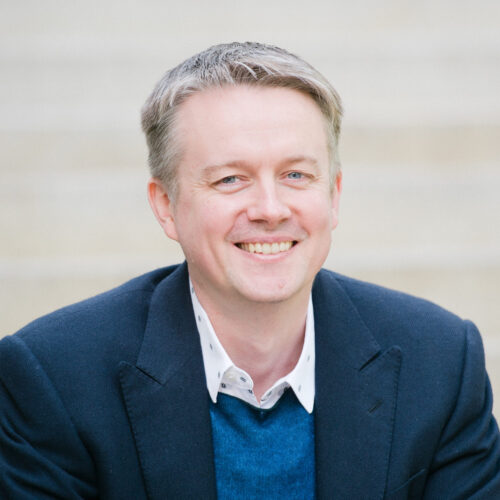
Jaan Tallinn
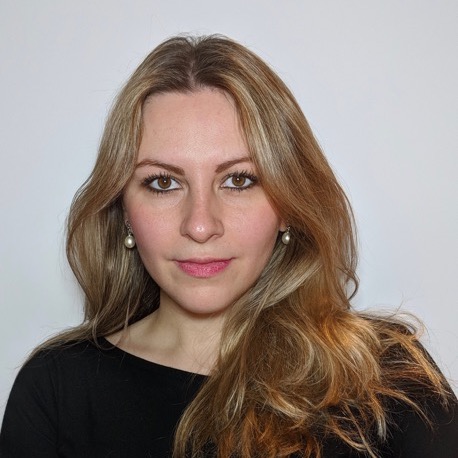
Meia Chita-Tegmark
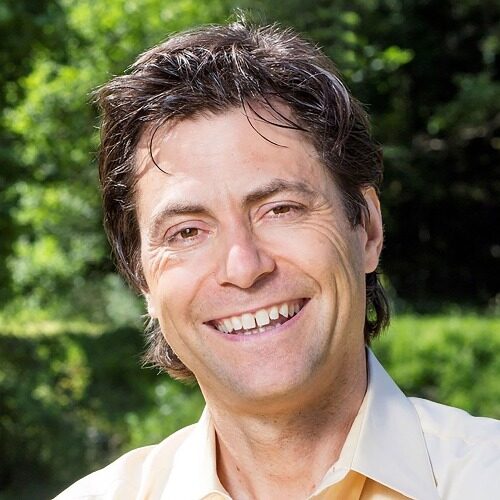
Max Tegmark

Victoria Krakovna
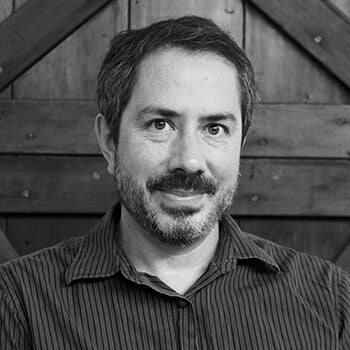
Anthony Aguirre
SCIENTIFIC ADVISORY BOARD alan alda;; nick bostrom humanities oxford ;; erik brybjoffson from mit to stanford;george church genetic harvard;; sandra faber astrophysucs santa cruz;; morgan freeman;; alan guth physics mit; christof koch allen institute brain science;; elon musk;; saul perlmutter physics berkeley;; martin rees cosmology cambridge;; francesca rossi ibm research & U Padova;; stuart russell ai berkeley; franz wilczek physics mit
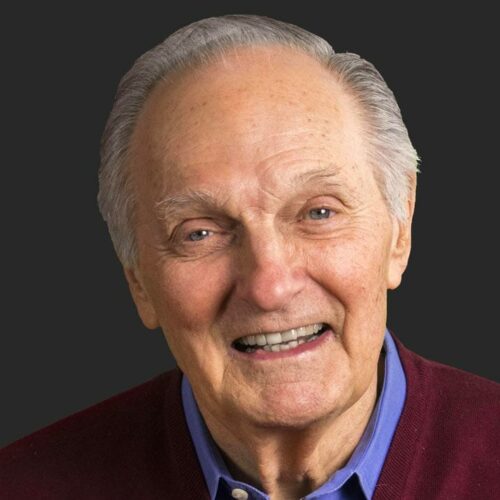
Alan Alda
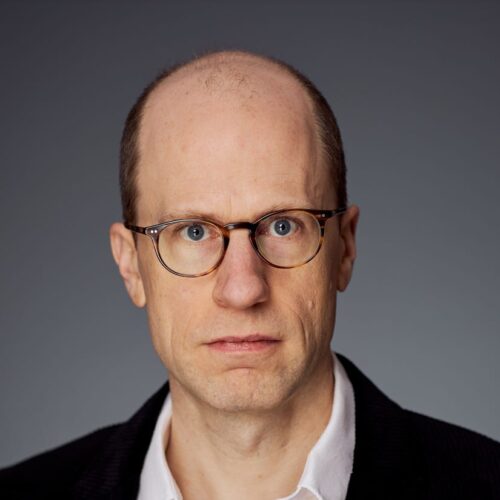
Nick Bostrom
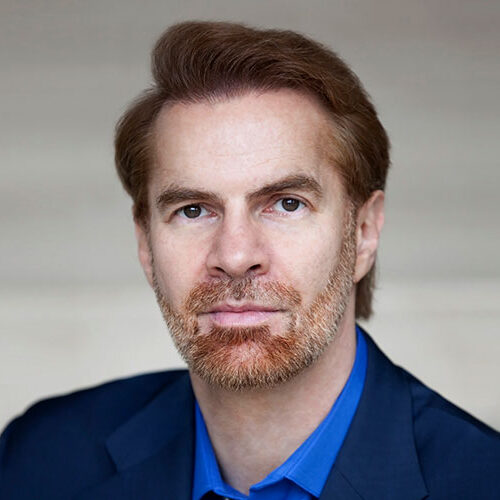
Erik Brynjolfsson
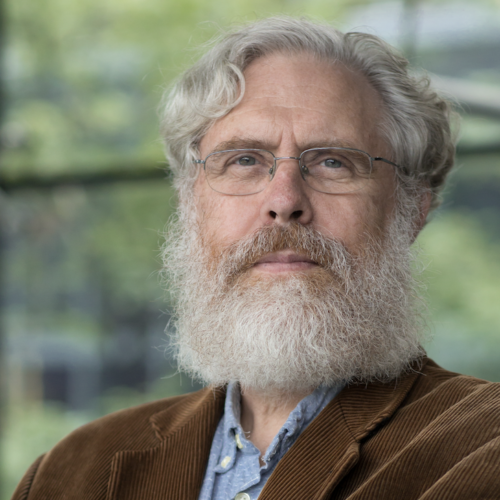
George Church
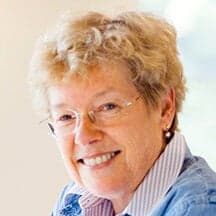
Sandra Faber
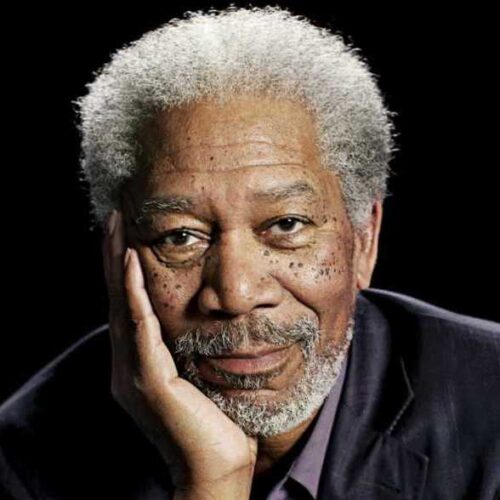
Morgan Freeman
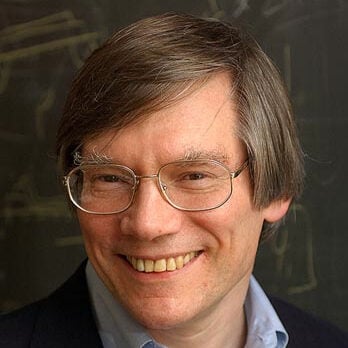
Alan Guth
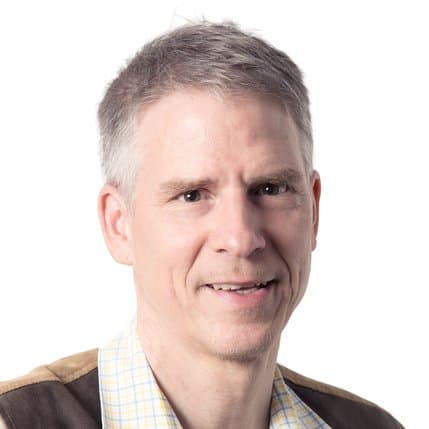
Christof Koch
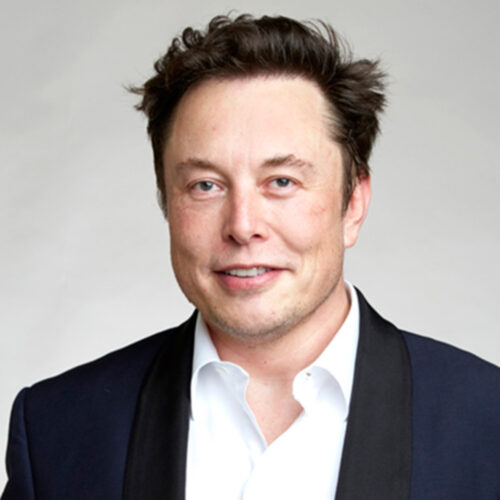
Elon Musk
ELON MUSK
Elon Musk is the founder, CEO and CTO of SpaceX and co-founder and CEO of Tesla Motors. In recent years, Musk has focused on developing competitive renewable energy and technologies (Tesla, Solar City), and on taking steps towards making affordable space flight and colonization a future reality (SpaceX). He has spoken about the responsibility of technology leaders to solve global problems and tackle global risks, and has also highlighted the potential risks from advanced AI.